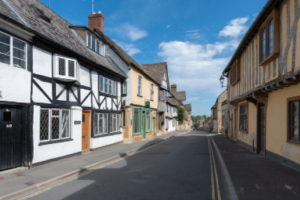Roald Dahl is “very easy to cast as a villain”,He was arrogant and overbearing, a “distant and wayward husband”, and an “unforgivable anti- Semite”. Yet he also brought delight to “tens of millions of children – myself included” – with his “joyful, wicked, silly, inventive” stories. Matthew Dennison follows Dahl’s numerous previous biographers in attempting to “fill the gap between these polarities”. While it offers “no new revelations or notable interviews”, Teller of the Unexpected is a “wellresearched” biography that turns the “baggy complications of Dahl’s life into something brisk and manageable”.
Dahl did at least have some excuse for his bad behaviour,his life was “unremittingly traumatic”. Born in Cardiff in 1916, he was just three when his eldest sister, Astri, died of a burst appendix. His father, a wealthy shipbroker originally from Norway, “dropped dead of grief” weeks later, leaving Dahl’s mother to bring him and his three sisters up alone. At boarding school, Dahl was singled out because he was foreign and aloof – and subjected to remorseless beatings.
Aged 18, having no wish to “prolong his experience of institutionalised learning”, he took a job with Shell in east Africa, where he “quite took to the colonial life”. When the Second World War broke out, Dahl enlisted with the RAF in Nairobi, but was badly injured after crash-landing in the Libyan desert. Although he recovered sufficiently to see some action, he spent the latter part of the War in the US, working for the British government as a cultural attaché. “The tall, handsome, injured airman was soon cutting a dash”: it was said that he “slept with everyone on both the east and west coasts who had more than $50,000 a year”. He also started writing, on the advice of C.S. Forester. Dahl married the actress Patricia Neal, and brought her back to England, where he became the familiar stooping figure in a cardigan with a cadaverous face and a writing shed in the garden. Wealth and fame followed, but so too did further tragedies,Theo, his baby son, suffered a brain injury after being hit by a New York taxi; Olivia, his daughter, died of measles aged seven; Neal had a stroke in 1965, forcing Dahl to effectively become her carer. Dennison’s book is “riveting, and immaculately written”, but “despair” pervades Dahl’s story. Reading it, “all I feel is pity, for a man so raging, and a boy so lost”.


Average Rating